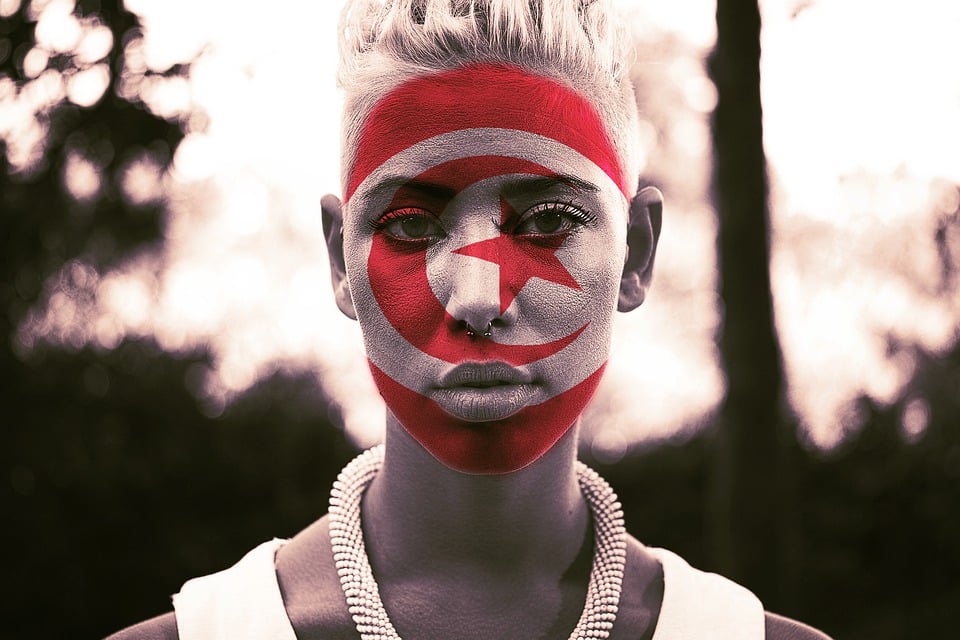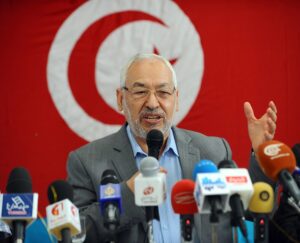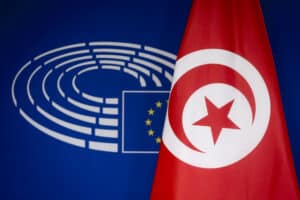Tunisia is considered to be the most progressive of all Arab countries in terms of gender equality and women’s rights. But a new bill on regulations of inheritance has divided politicians, civic society and religious leaders and is testing the country’s progress.
“Equality – a right, not a privilege”
On 10 March, Tunisian women took to the streets to demand equality in inheritance rights and an end to the distribution among heirs according to Islamic law. Under slogans such as “in a civil state I take exactly what you take” and “equality – a right, not a privilege” women marched together with men. The media often calls Tunisian women the most emancipated in the Arab world, but most of them do not want to take that as their goal. “It is true that Tunisian women have more rights compared to other Arab women, but we want to be compared with European women,” said Kaouther Boulila, an activist taking part in the march. But what have they achieved until now?
Since 2011, female representation in parliament has risen to 31%, a higher percentage than in some parliaments in the West, such as the US and Canada. The constitution of 2014 not only grants equality of men and women but also includes a “guarantee of equality of opportunity” and aims “to achieve equal representation…in elected councils” in article 46, stating clear goals. In 2017 two further laws, which strengthened women´s rights, passed parliament. Since June domestic violence has been criminalized and Muslim women are able to marry non-Muslim men, which according to Islamic law, is not allowed. Additionally, the parliament abolished a reform which would have allowed rapists to escape punishments by marrying the victim.
The red line of progress in Tunisia
Under current inheritance regulation, which is based on Islamic law, men usually get double of what women have a right to. The main argument is that men supply the family and are obliged to spend the money on its well-being. But in reality, this has changed. More women are part of the labour market, earning their own money and often being the one in the family who take care of finances.
In August 2017, president Beji Caid Essbsi formed the “Committee for Individual Freedoms and Equality”, which is supposed to design suggestions to improve women’s rights. The new bill it proposes includes that inheritance shall be split equally between male and female heirs and that women can pass their family name to their children. Because of the bill affecting the country´s cultural basis, discussions on it have been heated. The proposal´s presentation has even been postponed from 20 February 2018 to May because it was feared that the debate would overtake the upcoming municipal elections. The commission’s president, Bochra Bel Haj Hamida stated that “this project of civilization should not be an issue of electoral tension”.
In parliament, the ruling party Nidaa Tounes of president Essbsi, which currently holds 70 of 217 seats, strongly supports the bill. But opponents come from its coalition partner, the ruling Islamist political party Ennahda Movement, which won 69 seats in the last elections. They argue that the law reflects a foreign agenda and acts as a distraction of more relevant issues like unemployment and corruption, which have been haunting the country for decades. Opponents accuse Essbsi of using women´s rights as a “political football”. MP Rym Mahjoub of the Afek Tounes party, which is with only 8 seats also in the ruling coalition, denied the opponent´s accusations and called the president´s move “progressive and revolutionary”. She also added: “As a woman I’m proud that this issue will be discussed now… it does not mean that we do not have other social and economic problems or cancel the discussion of other important issues”. Former Minister of Public Health, Abdellatif Mekki, member of Ennahda, reacted to this by saying that the current laws around inheritance already form “a perfect system” and do not need to be discussed.
“State imposed feminism”
In religious spheres, which still play an important role in the country, opinions also remain divided. Tunisia´s biggest Islamic establishment, Diwan al-Ifta, supports the bill, while the Sunni-only institute Al-Azhar rejects it because it does not align with teachings of the Quran. Together with other smaller institutions they argue that the current law clearly regulates inheritance with no possible misunderstandings or mixing due to a secular law. The current situation is called “undebatable” and rules on inheritance in Islam are determined by Sharia, with “no space for independent reasoning or uncertainty”.
But the biggest opponents of the new law come from society. According to a survey made by the conservative think tank International Republican Institute, 63% oppose the bill while 25% strongly support it. Main points of criticism include that the debate only happens in parliament and that the reform will not be successful without a broad civic support. Hence, the president´s moves have been titled “state-imposed feminism”. MP Fattoum Lassoued of Ennahda argued that the enforcement of the law “would be very difficult because it touches upon the very nature of the Tunisian society. Inheritance laws are a red line”.
Situation of other minorities
Next to women, there are other minorities suffering under current religion based laws. Not playing in the hands of Tunisia´s title as most progressive Arab country is the situation of LGBT+ groups. A planned demonstration on 27 January 2018 was shut down by the police because of safety reasons. An Interior Ministry spokesperson stated that they “had information that (the protesters) were going to be targeted”. Mounir Baatour, an activist working with organisers ALP (Association of Free Thinkers) and queer radio station Shams said that they have registered the demonstration according to Tunisian law. Therefore, it was the police´s task to ensure the protesters´ safety and not just prohibit the demonstration altogether.
Hate speech on LGBT+ in public media can be found across the country. The first time a public institution reacted officially to violence against the community was in October 2015 through a statement made by Tunisian Independent High Authority for Audiovisual Communication (HAICA). It forbid any further discrimination coming from TV stations and other news agencies.
Homosexuality remains illegal and punishable in Tunisia under article 230 of the penal code. It prohibits any sexual acts between two consenting adults of the same sex by up to three years of imprisonment. Critics have been repeatedly saying that article 230 violates constitutional rights such as equality before law (article 21) and personal privacy (article 24). The latter is especially important in light of the so called “anal examinations” conducted on homosexual men to proof their sexual preferences. These tests have been denoted as “cruel, degrading and inhuman treatments and potentially torture, a violation of the protection of human dignity and the prohibition of torture as enshrined by Article 23” by human rights activists.
First queer radio station in the region
But the situation is slowly improving. Since the establishment of the committee, which also discusses women’s rights, article 230 has been under constant fire. It is also said that the abolishment or at least restriction of the law is on the committee’s agenda and will be proposed to the parliament as soon as possible. In May 2017 the Tunisian government officially recognised the existence of discrimination on the basis of sexual orientation by stating “any person of any sexual orientation has full rights…any act of aggression committed against any person on the basis of his sexual orientation is criminal and can be prosecuted”. In September 2017 Human Rights Minister Mehdi Ben Gharbia said that homosexual men will no longer have to undergo a testing of their sexuality through an anal examination. Judges can still order the test, but the accused has the right to refuse without a punishment. The most recent development has been the establishment of the region´s first queer radio station Shams, still running contrary to the many death threats it received. Its director Bouhdid Belhadi wants to raise awareness on lives of LGBT+ and individual rights and freedoms.
Compared to other Arab countries, Tunisia has been in fact progressive in its work in the fields of women´s rights. But the latest issue of inheritance is putting the country on a test, in civic society but also in politics and religious debates. Also, the government’s work on other minorities’ rights such as of the LGBT+ community is in too much need of improvements for Tunisia to actually be called progressive, though it still remains a frontrunner compared to its neighbours.
Sources:
Reuters Atlantic Council TRT World Washingtonpost foreign policy The Guardian Ansamed stepfeed IRI TAP Heinrich Böll Stiftung HRW



